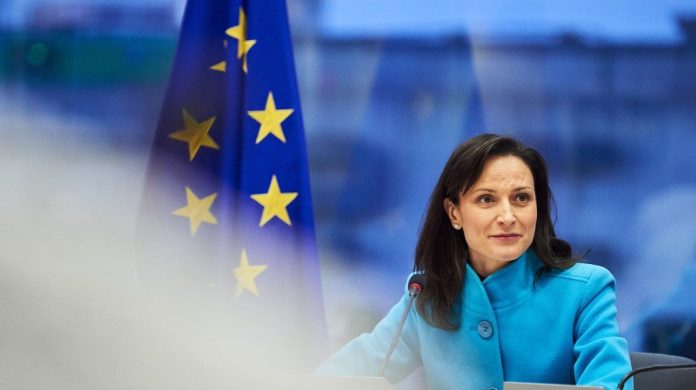The European Council and the European Parliament, representing the governments and citizens of European Union member states, have approved the European Commission’s new €95.5 billion Horizon Europe fund for the period to 2027; they are now to sign the deal off to set in motion the “most ambitious” research and innovation “in the world”.
The new Horizon Europe fund replaces the Commission’s Horizon 2020 programme, which covered the period 2014-2020 and represented the mainstay for the trading bloc’s innovation agenda, with a major chunk going on digital-change projects across member states.
Horizon Europe runs to the end of 2027, and raises the funding pot by 30 percent compared with last time out. The €95.5 billion sum includes €5.4 billion from the Commission’s €750 billion NextGenerationEU temporary recovery instrument, announced in the wake of the coronavirus (Covid-19) pandemic.
It also includes €4.5 billion as a supplement to the initial NextGenerationEU funding. Eleven industrial 5G research projects were signed off earlier this year, as part of the final Horizon 2020 payout. These focused on mobility, supply chains, and manufacturing, as well as on Europe-based innovation around 5G hardware itself.
Together, Horizon Europe and NextGenerationEU initiatives represent the largest stimulus package ever financed through the EU budget. It said a total of €1.8 trillion, in total, is going to rebuild a “post Covid-19 Europe.” The Commission commented: “It will be a greener, more digital and more resilient Europe.”
The funding flows via the European Research Council (ERC) and Joint Research Centre (JRC), the Commission’s science and knowledge service. It is geared towards “societal challenges” and the European Union’s “technological and industrial capacities”. The Commission has mapped out “thematic clusters” to address the “full spectrum of global challenges”.
These include a climate energy and mobility cluster focused on climate-related challenges; a digital industry and space cluster, taking in work on quantum computing, to handle data sharing and compute resources across members states; a culture and creativity cluster about creative sectors and cultural heritage; and a health cluster, freshly tasked with facing-off the Covid-19 pandemic, among other issues.
The Commission wants to prevent three million cancer deaths and to create 100 climate-neutral cities by 2030, plus “healthy oceans [and] seas, healthy soils and food, and regions resilient to climate changes”. It is putting renewed focus, it said, on “energy, transport, biodiversity, health, food, and circularity”. Digital technologies will play a key role in all.
A sum of €10 billion is going to the European Innovation Council (EIC), as a complement to the work by the European Institute of Innovation and Technology (EIT), to provide support for emerging and breakthrough innovations by small and medium-sized enterprises (SMEs), start-ups, and midcaps.
Horizon Europe funding will also be concentrated around other EU programmes and policies, such as InvestEU, Erasmus+, EU Cohesion Policy, Digital Europe, European Structural and Investment Funds, Connecting Europe Facility, and the Recovery and Resilience Facility.
Commissioner for Innovation, Research, Culture, Education and Youth, Mariya Gabriel, said: “Today’s agreement [is a] milestone for Europe. With Horizon Europe, the European research community, research organisations, and our citizens can count on the world’s largest research and innovation programme. It is our main tool to strengthen our scientific and technological base, develop solutions for healthier living, drive digital transformation, and fight climate change – for our collective resilience.”
Europe claims seven percent of the world’s population, 20 percent of global R&D investment, and one third of all high-quality scientific publications.

